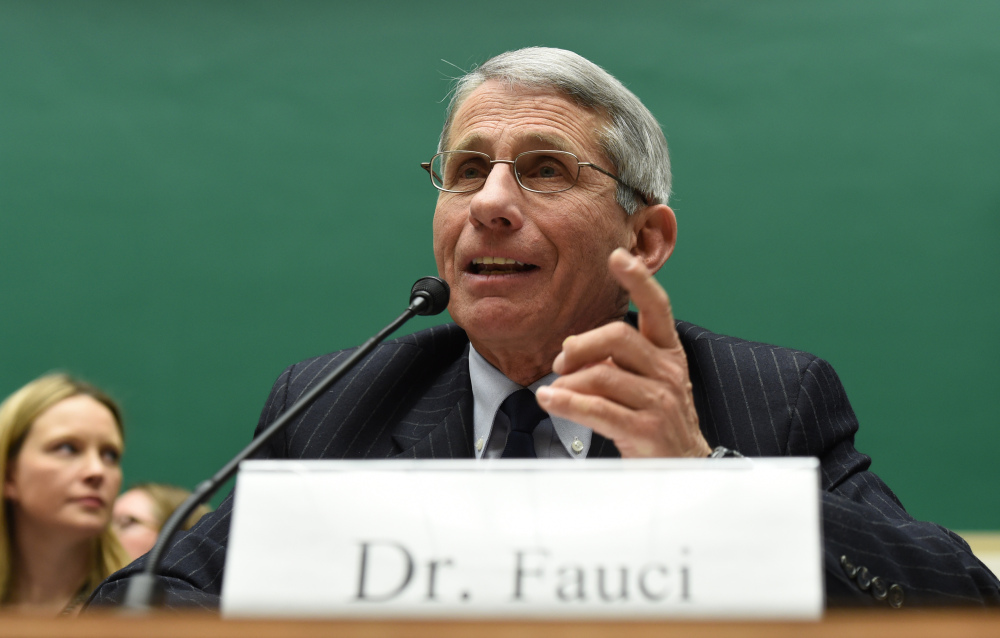WASHINGTON — It was a tale of two vaccines – one making politically charged headlines about kids not vaccinated against measles and the other reflecting the bleak reality of a harsh flu season.
Federal health officials faced tough questions from lawmakers Tuesday about why they didn’t take steps to produce a better flu vaccine as it became clear that this year’s version wasn’t going to offer much protection.
“Shouldn’t we be treating this problem with more urgency?” asked Rep. Tim Murphy, R-Pa., who called the House Energy and Commerce oversight subcommittee hearing amid concern that thousands may die of flu unnecessarily.
At the same time, lawmakers made sure to profess their support for vaccinations against measles, which has sickened more than 100 people in 14 states so far this year, most linked to an outbreak that started over the holidays at Disneyland.
“Have your children vaccinated,” declared Rep. Michael Burgess, a physician and Texas Republican who remembered his own case of childhood measles as painful. “We forgot about it, frankly,” he said of the suffering that highly contagious disease once inflicted in the U.S.
While most U.S. children have received the measles-mumps-rubella vaccine, some parents avoid vaccinations for religious reasons, and others cite concern that they could lead to autism – a claim that scientific research has debunked.
In Maine, where the opt-out rate for children entering kindergarten has climbed in recent years, and in the 2013-14 school year reached 5.2 percent, Rep. Richard Farnsworth, D-Portland, has submitted a bill that would make it more difficult for parents to forgo vaccinations.
Four top government health officials polled at Tuesday’s hearing called the measles vaccine very safe and highly effective.
“Vaccines save lives and are the best way for parents to protect their children from vaccine-preventable diseases,” said Dr. Anne Schuchat, the immunization director at the Centers for Disease Control and Prevention.
Dr. Anthony Fauci, infectious disease chief at the National Institutes of Health, said the decision to vaccinate against measles “is really a slam-dunk.”
But the lawmakers’ focus Tuesday was flu, which on average kills about 24,000 Americans each year. It’s too soon to know this year’s toll, although CDC says more than 60 children have died so far – and flu-related hospitalizations among people 65 and older are at their highest since the government started counting nine years ago.
In a typical year, less than half of Americans get a flu vaccine. And this year’s version is only about 23 percent effective, far less than the usual 50 percent to 60 percent. That’s because this winter’s most common flu strain is the aggressive H3N2 virus, and the vaccine isn’t a good match.
Here’s why: Flu viruses constantly mutate, and the vaccine is changed yearly to keep up based on what scientists see circulating in other countries with earlier influenza seasons than ours. The government picked this year’s recipe last February, and vaccine manufacturers started the months-long brewing process to make roughly 150 million doses.
In March, the CDC noticed a slightly different H3N2 strain was starting to circulate. But in the U.S., flu shots already were arriving on pharmacy shelves and it was too late to change, said CDC’s Schuchat.
Lawmakers asked, why not just create an extra shot that was a better match? It would take six months to have a fairly large supply, Schuchat replied.
“We’re all frustrated,” Murphy said. “We need to speed up this process.”
Copy the Story LinkSend questions/comments to the editors.



Success. Please wait for the page to reload. If the page does not reload within 5 seconds, please refresh the page.
Enter your email and password to access comments.
Hi, to comment on stories you must . This profile is in addition to your subscription and website login.
Already have a commenting profile? .
Invalid username/password.
Please check your email to confirm and complete your registration.
Only subscribers are eligible to post comments. Please subscribe or login first for digital access. Here’s why.
Use the form below to reset your password. When you've submitted your account email, we will send an email with a reset code.